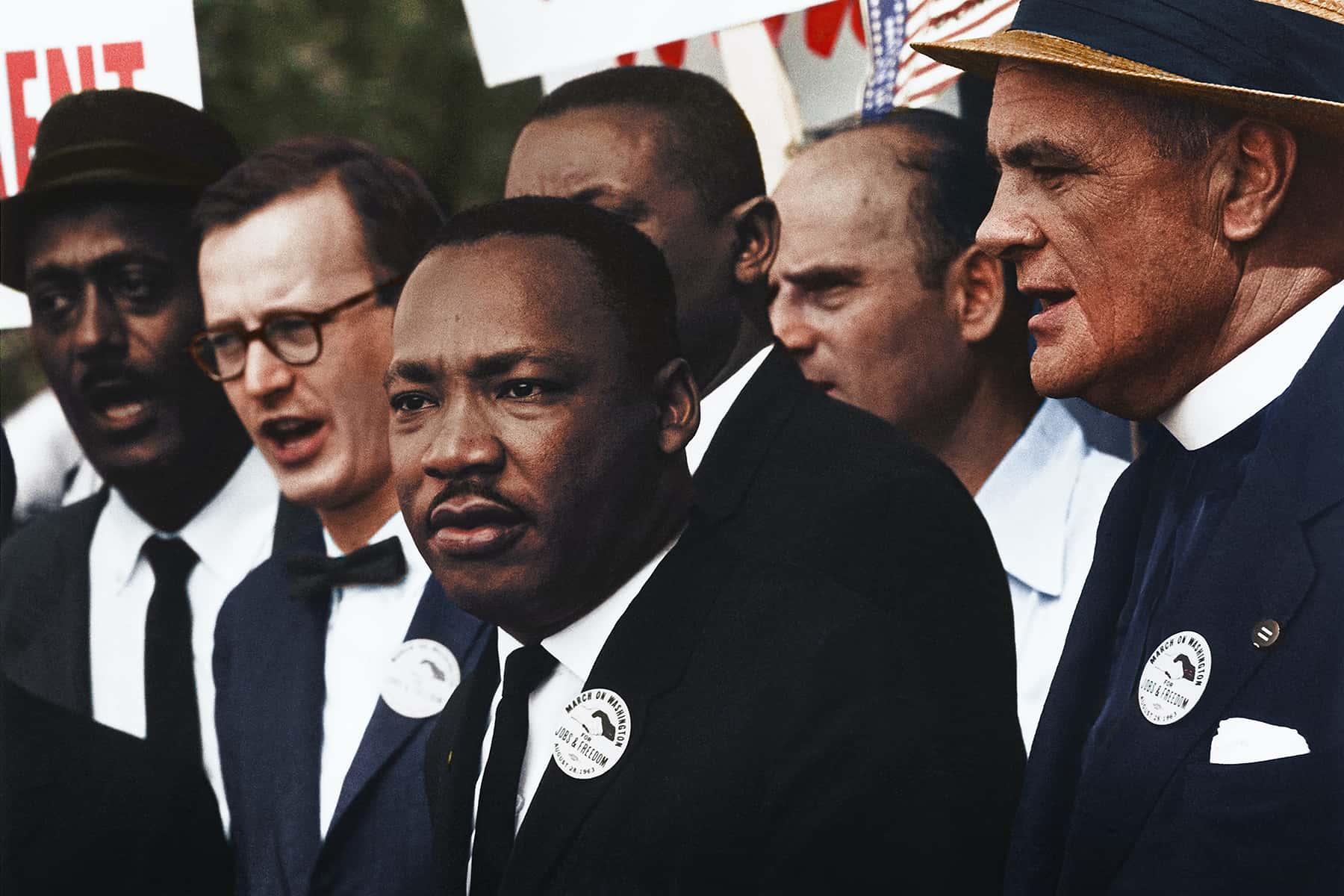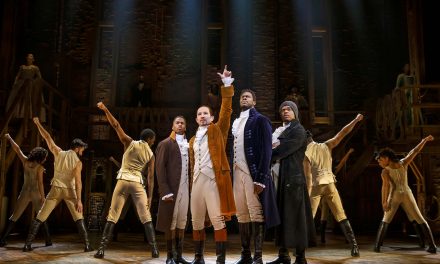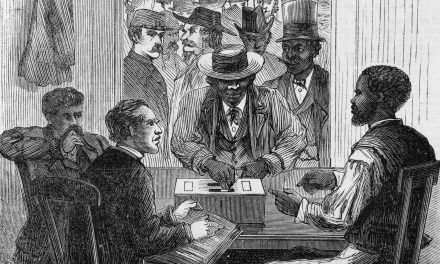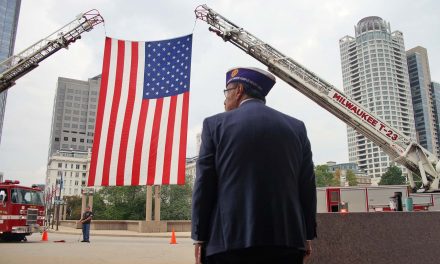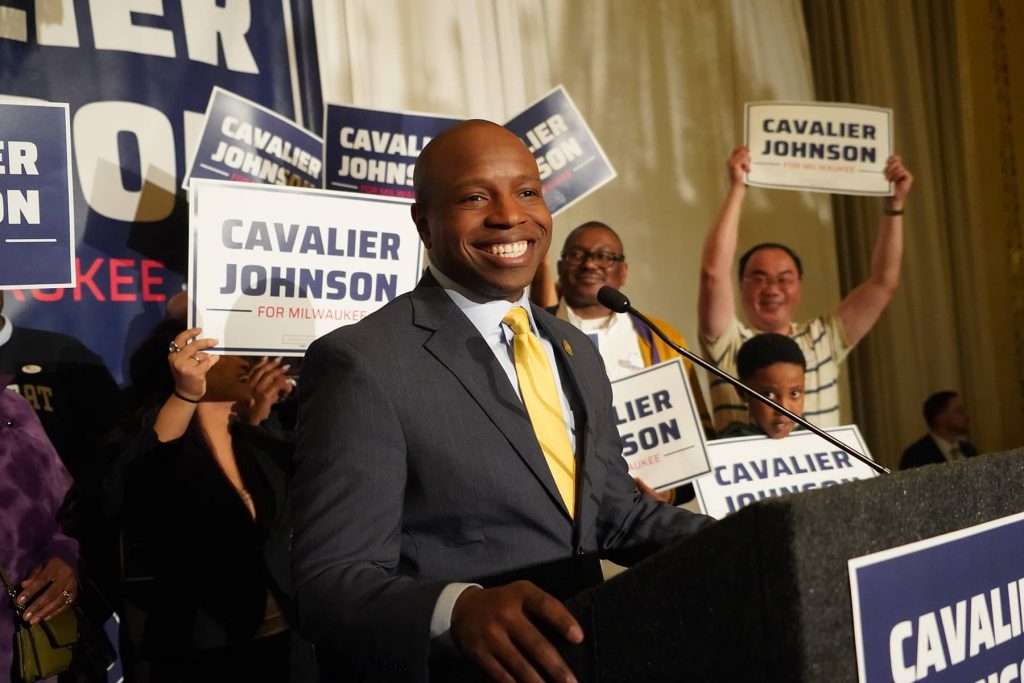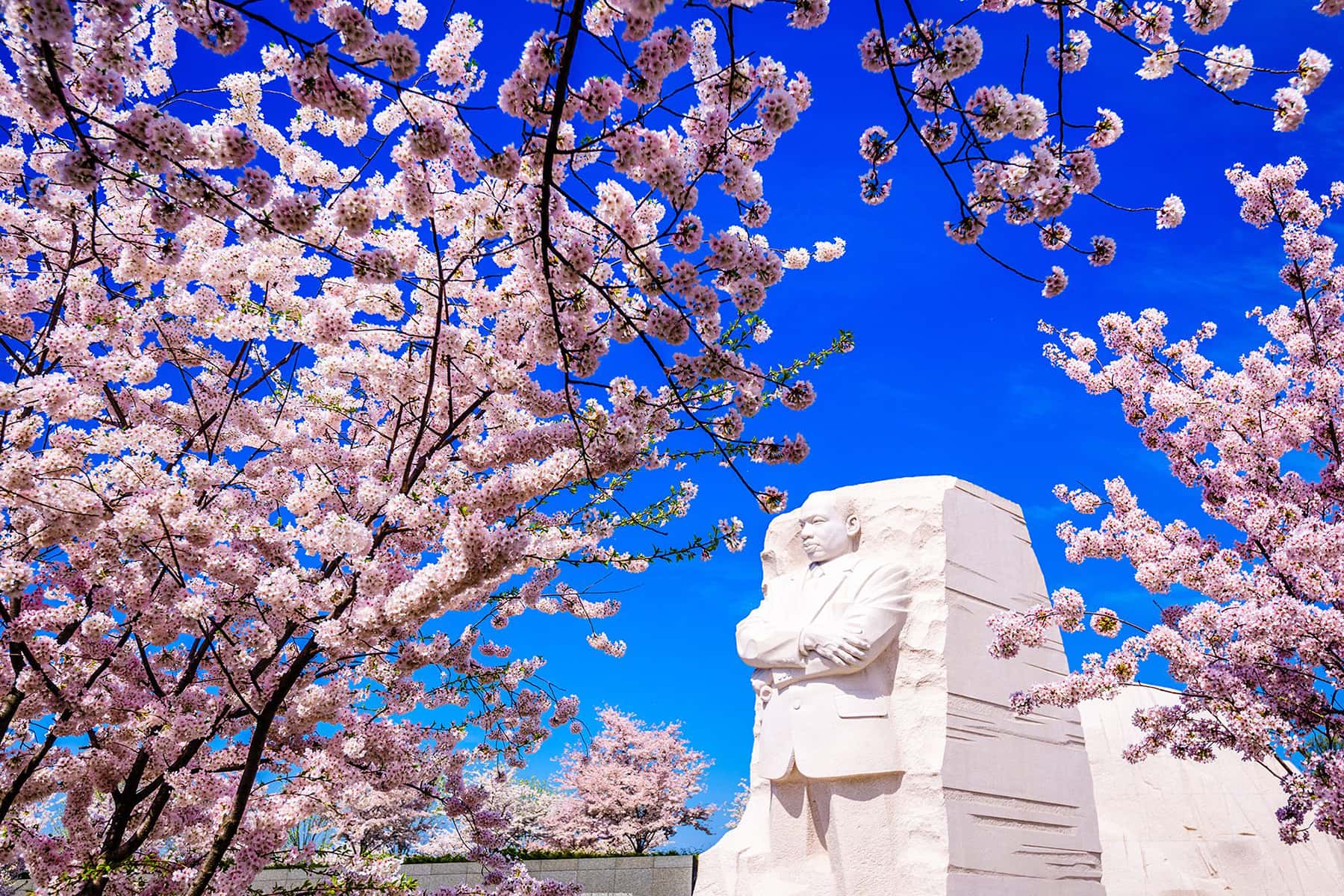
“I have a dream that my four little children will one day live in a nation where they will not be judged by the color of their skin but by the content of their character. I have a dream today.” – Dr. Martin Luther King’s “I Have A Dream Speech,” August 28, 1963
When the famous words of Dr. King from the “I Have A Dream” Speech begin to be used by covertly and even overtly racist people to promote a new form of White domination, I know it is way past the time we re-teach who Dr. King really was. The new, more intellectual, more cunning, more sneaky, more polished, less scary looking, more friendly looking, racists are very creatively using the words of the anti-White Supremacy Civil Rights Movement to win converts to their way of seeing the world.
Don’t be duped into believing they are anything other that wolves in sheep’s clothing. Dr. King died a young man at just thirty-nine years of age, but he was much older in his thoughts about the world he wanted to see.
Unfortunately, the way we talk about, and just as importantly, teach about him, he has been stuck on August 28, 1963 in the collective memory of America. Most Americans cannot tell you the names or subject matters of any other speeches he made other than the I Have A Dream speech and the one he gave the night before he was killed by an assassin’s bullet.
To be as famous as he is, he is more misunderstood than any other famous person I know of. He was a brilliant, courageous, dedicated, and flawed human being. He was not a saint. He was far from perfect. However, we can clearly see by studying his words, that he was, like all of us, a work in progress.
He was more unpopular on the day that he died than at any time in his public life. Dr. King struggled with the reality that many who supported him, had turned their backs on him. His radicalism as some called it might have been the reason he was killed. Not his radicalism related to racism, but his radicalism towards looking at America and calling it out for being “the greatest purveyor of violence in the world.”
Most of us have heard or learned about his famous speech at the March on Washington. His other speeches and writings are mostly unknown by those who claim to love what he stood for. He is like many famous people. He has been turned into this perfect hero in our history books.
“What passes for identity in America is a series of myths about one’s heroic ancestors.” – James Baldwin
The late sociologist, James Loewen, in his most famous book, Lies My Teacher Told Me, talked about the problem of hero-making in history.
“ … heroification, a degenerative process … that makes people over into heroes. Through this process, our educational media turn flesh-and-blood individuals into pious, perfect creatures without conflicts, pain, credibility, or human interest.”
Dr. King’s life has been hidden in this process of heroification, and we really don’t know him nearly as well as we think we do. If the only thing you know about Dr. King is his dream, you are massively uninformed about who this wonderful man was.
Dr. King was born on January 15, 1929, Michael King Jr. in Atlanta, Georgia a city which saw one of the bloodiest anti-Black race riots in the nation’s history just twenty-three years before his birth. The city which calls itself “the city too busy to hate” was certainly not that when Dr. King was born. When his father travelled to Germany in 1934 he became enchanted with the Protestant leader Martin Luther and changed his and his son’s name to reflect his reverence for the late reformer.
Dr. King grew up in a well off community of Blacks who lived a solidly middle and upper middle class existence. He never knew poverty as a child, even during the Great Depression.
As a six-year-old, Jim Crow segregation hit him with a gut punch. A White child he enjoyed playing with told him he could no longer be his friend. The boy’s parents said that since they were then in segregated schools that they could not play together anymore.
As pastor at Dexter Avenue Baptist Church, he would be pulled into the growing discontent over segregated buses in the state’s capitol. The leaders of the Montgomery Improvement Association, including Rev. Fred Shuttlesworth, asked the twenty-six year-old King to lead the boycott which would last for 381 days. The movement put Dr. King on the national map. In his first speech as leader he shared these words:
“We have no alternative but to protest. For many years we have shown an amazing patience. We have sometimes given our White brothers the feeling that we liked the way we were being treated. But we come here tonight to be saved from that patience that makes us patient with anything less than freedom and justice.”
The theme of a lack of patience would be a common motif by Dr. King for the next dozen years of his life.
While sitting in the Birmingham jail in April 1963, he wrote his famous Letter From A Birmingham Jail. The letter was directed at White allies who consistently told Dr. King that he was pushing too hard for changes that needed more patience to attain. He spoke of these White moderates “who paternalistically feels that he can set the timetable for another man’s freedom; who lives by the myth of time; and who constantly advises the Negro to wait until a ‘more convenient season.’”
Dr. King’s most famous speech was given at the 1963 March on Washington for Jobs and Freedom. It was a fairly long speech, but most of us only learned about the ending in school. To this day, it is rare to hear anything other than the unplanned part about his dream. That was not part of his prepared speech he wrote for that day. Instead he talked about what America owed Black people, and the promises by the Founding Fathers and Abraham Lincoln.
“Five score years ago, a great American, in whose symbolic shadow we stand today, signed the Emancipation Proclamation. This momentous decree came as a great beacon light of hope to millions of Negro slaves who had been seared in the flames of withering injustice. It came as a joyous daybreak to end the long night of their captivity. But 100 years later, the Negro still is not free. One hundred years later, the life of the Negro is still sadly crippled by the manacles of segregation and the chains of discrimination. One hundred years later, the Negro lives on a lonely island of poverty in the midst of a vast ocean of material prosperity. One hundred years later the Negro is still languished in the corners of American society and finds himself in exile in his own land. And so we’ve come here today to dramatize a shameful condition. In a sense we’ve come to our nation’s capital to cash a check. When the architects of our republic wrote the magnificent words of the Constitution and the Declaration of Independence, they were signing a promissory note to which every American was to fall heir. This note was a promise that all men – yes, Black men as well as White men – would be guaranteed the unalienable rights of life, liberty and the pursuit of happiness. It is obvious today that America has defaulted on this promissory note insofar as her citizens of color are concerned. Instead of honoring this sacred obligation, America has given the Negro people a bad check, a check which has come back marked insufficient funds.”
Why is this part left out of the history books and the celebrations of his life like those held today? Why are children around the country writing speeches about his legacy based on the ending of this speech alone? Why will we hear over and over today about his dream?
It is because America has whitewashed his memory. They have left the “militant” Dr. King on the side of the historical road. His true dedication to what’s right and outspokenness is too much for America to handle. Even when President Ronald Reagan signed his birthday into law as a federal national holiday, he was privately criticizing Dr. King in a letter to Governor Meldrim Thomson Jr. of New Hampshire. Thomson tried to convince Reagan to veto the bill making King’s birthday a holiday. Reagan’s letter stated the following about the holiday bill:
“On the national holiday you mentioned, I have the reservations you have. But here the perception of too many people is based on an image, not reality. Indeed to them the perception is reality.”
Reagan was basically calling Dr. King a fraud. Republican Senator Howard Baker helped push the bill toward approval in the Senate. Could you imagine the current GOP doing the same today?
There was controversy involving comments Reagan made about King when asked if he thought King had communist sympathies. He answered that “we will know in about 35 years” when King’s FBI file would be released to the public. Coincidentally, the President after he issued an apology to King’s widow, Coretta Scott King for the remark, spent the week at the then all-White Augusta National Golf Club.
King’s years after the famous Birmingham campaign are mostly erased from American history books. It is as if the I Have A Dream Speech was the last words he spoke in public that are noteworthy.
Those years are critical to a true understanding of the life and legacy of Dr. King. Just three short weeks after the deadly unrest known by most as the Detroit Riot of 1967, Dr. King addressed his organization, the Southern Christian Leadership Conference in Atlanta.
He spoke very candidly about the causes of the unrest. He named five causes including the White backlash to civil rights laws, massive unemployment, discriminatory practices, the Vietnam War, and finally “features peculiar to big cities: crime, family problems, and intensive migration.” These are some of the words from that speech.
“I place the White backlash first because the outbursts have an emotional content that is a reaction to the insults and depravity of the White backlash. Many people point out that there have been years of some progress, and this is true. Yet equally true is the fact of an animalistic reaction by a significant section of the White population. In the midst of progress Negroes were being murdered in the South and cynical White jurors automatically freed the accused. In Chicago last year thousands of vicious White hoodlums with murder in their hearts bombarded Negroes with rocks and bottles because they dared to ask to be neighbors. The White backlash told Negroes that there were limits to their progress; that they must expect to remain permanently unequal and permanently poor. The White backlash said Negroes should not confuse improvements with equality. True equality, it said, will be resisted to the death. The so-called riots in a distorted and hysterical form were a Negro response that said inequality will now be resisted to the death … The third cause is discrimination, which pervades all experiences of Negro life. It pushes the Negro off the economic ladder after he has ascended a few rungs. It stultifies his initiative and insults his being. Even the few Negroes who realize economic security do not attain respect and dignity, because on upper levels discrimination closes different doors to them. Discrimination is a hell hound that gnaws at Negroes in every waking moment of their lives to remind them that the lie of their inferiority is accepted as truth in the society dominating them … the riots are not simply a reign of terror or a splurge of crime, though both elements are partially present. They are also a wildly emotional protest and a desperate attempt to display the utter desperation that has engulfed many Negroes. The vast majority who actively participated were remarkably discriminating in avoiding harm to persons, venting their anger by appropriating or destroying property. There is an ironic purpose in this choice; to attack a society that appears to cherish property above people, the worst wounds to inflict on it are those to property.”
His critiques of the Vietnam War would lead to a great deal of criticism of Dr. King even among some of his own foot soldiers. His national standing as a leader would be questioned by many of his former White supporters. They would make the claim that he was getting out of his lane and speaking about things he did not know about.
He also said that day in Atlanta that, “the fourth cause is the war in Vietnam. Negroes are not only conscripted in double measure for combat, but they are told the billions needed for remaking their lives are necessary for foreign intervention.”
This would not be the first or last time he criticized the war. His relationship with President Lyndon Johnson deteriorated due to his honest assessment of the war. He first came out against the war in March 1965 when he said “millions of dollars can be spent every day to hold troops in South Viet Nam and our country cannot protect the rights of Negroes in Selma.” Prior to this, in December of 1966, King argued before a congressional subcommittee on budget priorities, that a “rebalancing” of budgetary policies away from the nation’s “obsession” with Vietnam and more toward support for anti-poverty programs should be a priority. This reminds me of the current push towards defunding police for the same reasons Dr. King spoke of in the latter years of his life about incessant wars.
He led an anti-war march in Chicago the following year on March 25, 1967. His most famous words against the war were in his mostly forgotten, “Beyond Vietnam” speech, given exactly one year before he was gunned down in Memphis. In that speech he articulated the history of the fight by the people of Vietnam against the colonial domination of the Japanese, French and then Americans. He said “my conscience leaves me no other choice” but to speak out as a man of non-violence. The severe criticism after this speech would leave Dr. King on a lonely island during the last year of his life. The politicians, liberals, and media turned on Dr. King like vultures on a freshly killed animal in the wilderness.
In my view, this speech was his most powerful by far. Many others have since praised the speech, but at the time he gave it, he was castigated in the press and among conservative members of the Black community including the leadership of civil rights organizations. They were afraid of losing financial support for their work, but Dr. King said it was a chance he was willing to take.
He titled his remarks at the Riverside Church in New York City Beyond Vietnam: A Time to Break Silence. It was an incredibly brave speech that says more about Dr. King and his firm stance about non-violence than any other words he ever wrote or spoke.
“The recent statements of your executive committee are the sentiments of my own heart, and I found myself in full accord when I read its opening lines: ‘A time comes when silence is betrayal.’ And that time has come for us in relation to Vietnam … And some of us who have already begun to break the silence of the night have found that the calling to speak is often a vocation of agony, but we must speak … At the heart of their concerns this query has often loomed large and loud: ‘Why are you speaking about the war, Dr. King?’ ‘Why are you joining the voices of dissent?’ ‘Peace and civil rights don’t mix,’ they say. ‘Aren’t you hurting the cause of your people,’ they ask? And when I hear them, though I often understand the source of their concern, I am nevertheless greatly saddened, for such questions mean that the inquirers have not really known me, my commitment or my calling … A few years ago there was a shining moment in that struggle. It seemed as if there was a real promise of hope for the poor – both Black and White – through the poverty program. There were experiments, hopes, new beginnings. Then came the buildup in Vietnam, and I watched this program broken and eviscerated, as if it were some idle political plaything of a society gone mad on war, and I knew that America would never invest the necessary funds or energies in rehabilitation of its poor so long as adventures like Vietnam continued to draw men and skills and money like some demonic destructive suction tube … We were taking the Black young men who had been crippled by our society and sending them eight thousand miles away to guarantee liberties in Southeast Asia which they had not found in southwest Georgia and East Harlem. And so we have been repeatedly faced with the cruel irony of watching Negro and White boys on TV screens as they kill and die together for a nation that has been unable to seat them together in the same schools … As I have walked among the desperate, rejected, and angry young men, I have told them that Molotov cocktails and rifles would not solve their problems. I have tried to offer them my deepest compassion while maintaining my conviction that social change comes most meaningfully through nonviolent action. But they ask – and rightly so – what about Vietnam? They ask if our own nation wasn’t using massive doses of violence to solve its problems, to bring about the changes it wanted. Their questions hit home, and I knew that I could never again raise my voice against the violence of the oppressed in the ghettos without having first spoken clearly to the greatest purveyor of violence in the world today – my own government … They must see Americans as strange liberators. The Vietnamese people proclaimed their own independence in … 1945 … Even though they quoted the American Declaration of Independence in their own document of freedom, we refused to recognize them … We have destroyed their two most cherished institutions: the family and the village. We have destroyed their land and their crops … If we continue, there will be no doubt in my mind and in the mind of the world that we have no honorable intentions in Vietnam. If we do not stop our war against the people of Vietnam immediately, the world will be left with no other alternative than to see this as some horrible, clumsy, and deadly game we have decided to play.”
He could have just as easily been speaking about the useless wars America fought in Iraq and Afghanistan.
If we want to truly honor Dr. King today, do it the right way and read the letter he wrote in the jail in Birmingham, and the speeches I mentioned above. Get to know a nuanced Dr. King. Read the entirety of the I Have A Dream speech and why he even talked about the dream at the end when it was not a part of the speech he prepared to give that day. Once you’ve done all of that, think about how you will honor his memory moving forward. He was not just a leader. He was an ordinary man who did extraordinary things with his life. He could have pursued medical school like he intended, but followed his father into the ministry and eventually led his nation toward being the democracy it claimed to be.
“I would turn to the Almighty, and say, ‘If you allow me to live just a few years in the second half of the twentieth century, I will be happy.’ Now that’s a strange statement to make, because the world is all messed up. The nation is sick. Trouble is in the land. Confusion all around. That’s a strange statement. But I know, somehow, that only when it is dark enough, can you see the stars. And I see God working in this period of the twentieth century in a way that men, in some strange way, are responding — something is happening in our world. The masses of people are rising up. And wherever they are assembled today, whether they are in Johannesburg, South Africa; Nairobi, Kenya; Accra, Ghana; New York City; Atlanta, Georgia; Jackson, Mississippi; or Memphis, Tennessee — the cry is always the same — ‘We want to be free … ’ We aren’t engaged in any negative protest and in any negative arguments with anybody. We are saying that we are determined to be men. We are determined to be people. We are saying that we are God’s children. And that we don’t have to live like we are forced to live.” – Dr. Martin Luther King’s final speech, the night before he was killed

